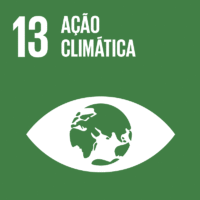Ciência_Iscte
Publicações
Descrição Detalhada da Publicação
On the discontinuity of the future by other means: reviewing the foresight world of Richard Slaughter
Título Revista
Futures
Ano (publicação definitiva)
2017
Língua
Inglês
País
Reino Unido
Mais Informação
Web of Science®
Scopus
Google Scholar
Abstract/Resumo
Richard Slaughter has made pioneering contributions to futures research. These contributions have been both procedural and substantive. This review seeks to appreciate some of the progress that his work has brought to the field through a review of two of Slaughter’s most recent books The Biggest Wake-up Call in History (2010) and To See with Fresh Eyes (2012). This paper traces how Slaughter’s intellectual wake-up built up over time. It highlights a set of fundamental tools, ideas and ideals that spring from Slaughter’s work over decades and is synthesised in these two books. This appraisal becomes an “augmented review” by also taking into account his book blurb material and peer-reviewed journal work. This review draws on this evidence to analyse and profile the multi-disciplinary resonance of these references and to illustrate the broader intellectual impact. In addition a bibliometric analysis offers a way beyond the two books and performs an out-of-sample assessment of the way Slaughter has continued to develop the foresight agenda.
Agradecimentos/Acknowledgements
--
Palavras-chave
Richard slaughter,Integral futures,Transition,Bibliometrics
Classificação Fields of Science and Technology
- Economia e Gestão - Ciências Sociais
- Geografia Económica e Social - Ciências Sociais
Registos de financiamentos
| Referência de financiamento | Entidade Financiadora |
|---|---|
| UID/GES/00315/2013 | Fundação para a Ciência e a Tecnologia |
Contribuições para os Objetivos do Desenvolvimento Sustentável das Nações Unidas
Com o objetivo de aumentar a investigação direcionada para o cumprimento dos Objetivos do Desenvolvimento Sustentável para 2030 das Nações Unidas, é disponibilizada no Ciência_Iscte a possibilidade de associação, quando aplicável, dos artigos científicos aos Objetivos do Desenvolvimento Sustentável. Estes são os Objetivos do Desenvolvimento Sustentável identificados pelo(s) autor(es) para esta publicação. Para uma informação detalhada dos Objetivos do Desenvolvimento Sustentável, clique aqui.

 English
English



